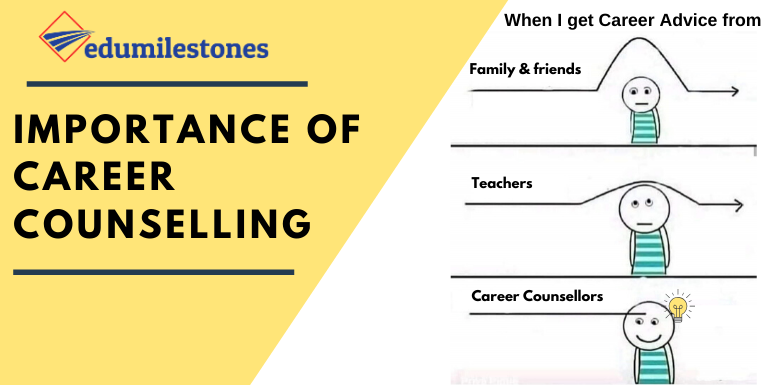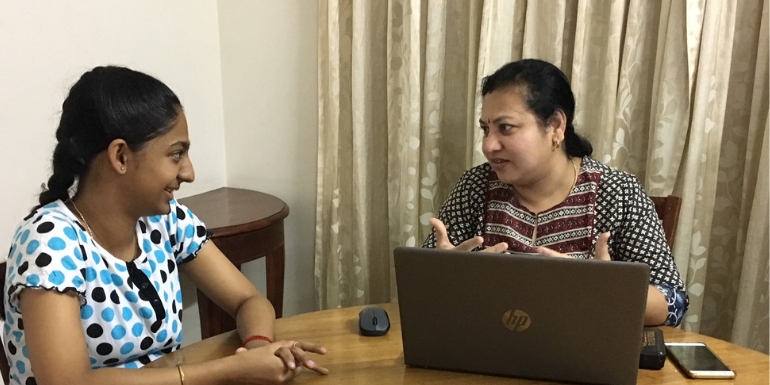With increasing competition and societal pressures, young people, especially millennials constantly have the question of choosing a perfect career. Career options have been increasing along with increasing technologies. It is possible to sometimes lose direction in the wide sea of opportunities out there. To make proper career decisions, it is important to find a sustainable interest that can provide you with financial and social security in the future.
Importance of Choosing the Right Career Path
Long-term professional happiness can only be achieved if your career plans are solid. Picking the wrong career can lead to wasting a lot of years and resources for any individual. While switching career paths in between shouldn’t be something to be ashamed of, it is still beneficial to make such important decisions while you are young and can afford to make mistakes. There have been many cases where youngsters have taken the wrong subject majors following their peers or parents and have not liked it after some time.
Making serious decisions as a young adult can be very stressful as your whole life depends on it. Choosing the right career and avoiding boring desk jobs is every individual’s desire. An optimum career should align with your interests, hobbies, and financial goals. Choosing a suitable career has become increasingly important in today’s world.
Let us highlight this issue and discuss in detail the four simple steps to choose the right career option.
4 Simple Steps to Choose the right career path
Step 1: Figuring out what you love
It is important to make a list of hobbies or things that you enjoy doing every day. We know that life and work are hard and thats why people should at least enjoy their struggles. To do this, they have to find a job they love! Finding something to do that doesn’t force but motivates you to get up and hustle every day is what is ideal. Not all people might make their hobbies and passions their full-time career but it is important to have a happy place to begin the journey.
Discovering where your talents lie and what you enjoy can have a huge difference. For instance, someone with excellent artistic skills might not eventually sell their paintings but work as a lawyer. Having multiple hobbies and talents is beneficial as it gives the individual a choice or leeway between career paths. A plan B is always helpful in case things don’t work out. You might be an excellent artist but it might be possible that you are not as successful as you would have been in another career.
Your passion can be extracted from your personality traits. Finding a career that suits your personality is a must or else it might become a huge problem later on. For instance, an introverted person might not be that good in sales or marketing fields but might have an excellent analytical capability. Fields like research, or analyzing data might be ideal for this person.
Step 2: Doing your research about the career scopes
It is necessary to identify what people need out of a career. Someone might just be money-minded and won’t care about giving up their hobbies that much. Having a respectable job position at a high-quality company would attract them and influence their career decisions accordingly. Some people just want to work to benefit society and might work for an NGO even for lesser pay. You need to figure out where your interests lie and what career might lead to your long-term goal. Narrowing down roles help in strategizing a good plan for success.
It is important to finalize career options that bring job satisfaction, financial independence, and mental well-being in the future. Getting stuck in a dead-end job is every adult’s worst nightmare. It is important to research your options and narrow down which one is best for you. Career research helps identify skills that you might possess and help explore the wide range of possibilities present. It helps analyze the prerequisites of a job role and how demanding it will be. For an impatient individual, becoming a doctor might seem to be very hectic even after the high success rate. However, for someone else, going into healthcare might be their lifelong dream.
Research might also remove false assumptions people might have for a particular field. There have been many instances where students have taken loans to enrol in an attractive career field but have ended up disappointed. This is simply because their expectations didn’t match with reality. Apart from looking at ‘highest-paying jobs’ like most aspirants do, it is important to research whether you can excel in those jobs or not.
Step 3: Taking Practical Experience
There are many ways to explore appropriate careers. Just googling or learning about job roles, in theory, is not enough. You need experience to get a job and doing jobs to get experience is true. Trying enough things at a young age is an added benefit as it not only helps determine your hobbies but also helps to eliminate careers one doesn’t want to pursue. For example, if a person can’t dance, sing, or act it is highly unlikely that he’ll pursue a career in the performing arts.
Doing internships, volunteer work, joining fellowships are some of the ways to find an ideal career path. Doing such activities gives people the opportunity for job shadowing or learning from experienced professionals. Talking to career advisers, attending career fairs, growing online work connections are all important to understand your field of interest. They assess aptitude, personality, and help select aspirants’ proper paths that might be fruitful for them in the future.
Step 4: Design Action Plan and choose the right path
Combining passion with financial security is important to choosing the right career. For instance, a person might be passionate about singing but not be that financially secure. If he’s serious about his passion, the need for money must be taken care of earlier. This is because people don’t want a career from a hobby that might not be that fruitful economically.
As already mentioned, taking proper guidance and counselling can help you determine a plan to move forward in the field. For instance, if you want to become a teacher, what courses have to be undertaken, how to develop social skills, which type of internships have to be done, etc. can be decided with the help of a professional. Designing proper action plans prevents you from wasting time and helps you reach your destination as soon as possible.
Consulting with a Career Counselor before choosing the right career path
Consulting with career advisors and counsellors can be beneficial to learn about the career road that lies ahead. Since these are more experienced individuals, they can guide you perfectly whether you have made the correct decision by choosing a particular field or not. They can also guide you further on how to plan your career to gain maximum benefits in a lesser time. They help fight distractions and tell what you should or shouldn’t do while moving ahead in the field.
They are good listeners and communicators who identify problems and provide a plan to the career seeker. Seeking guidance from our top platform, Edumilestones is beneficial in the long run. At Edumilestones, you can seek a full-fledged career assessment according to your interests, skills, and demands from a job. Counsellors here help in exploring career paths by analyzing learning potential, emotional quotient, abilities, etc. in an individual. They provide career assessments at different stages of academics. They start from a young age of 10 years and go up to professional level counselling. Their counselling patterns vary according to different ages and needs. For example, at 10 years of age, it might not be necessary to finalize a career path. However, counsellors at Edumilestones help you self-explore their abilities and hobbies.
The risky stage of higher secondary and graduation can also be aided by getting proper career counselling. From choosing the proper stream of academics to finding the best colleges, to job roles needed to be undertaken, all can be understood through career counselling. From Edumilestones, students or working professionals can check out certified counsellors available in their region. Individuals can book appointments with multiple counsellors to gain a wider perspective. Counselling sessions, assessment tests, etc. can educate you on what career paths to choose.
Have a look at the simple steps to get connected to a career counsellor near you from Edumilestones.
Step 1: Open the Edumilestones.com.
Step 2: In the Drop-down menu pick from the available option and choose "career counselling for students".
Step 3: In the next box next to drop down, enter your location.
Step 4: The list of eminent counsellors will show up on the screen. You can browse and choose accordingly.
Wrapping Up
While being unemployed and figuring out what to do for sustainable living is stressful, selecting the wrong career can be equally painful. It is important to realize mistakes earlier in life to avoid facing major hardships in the future. Constantly switching job roles, lesser job satisfaction even after good pay, can be signs that you are on the wrong career path. Similarly for students who have been forced to take up a certain academic path or have chosen them due to their assumptions and lesser research can get help from professionals. There is always someone more experienced than you from whom you can gain knowledge about the next steps to undertake. Career counselling from sites like Edumilestones, gaining experience from internships, or even consulting with fellow peers can help in navigating correct career paths. Since every individual is unique, there is always a career available where you can excel. That being said, we shouldn’t lose hope and constantly work for a better life.













